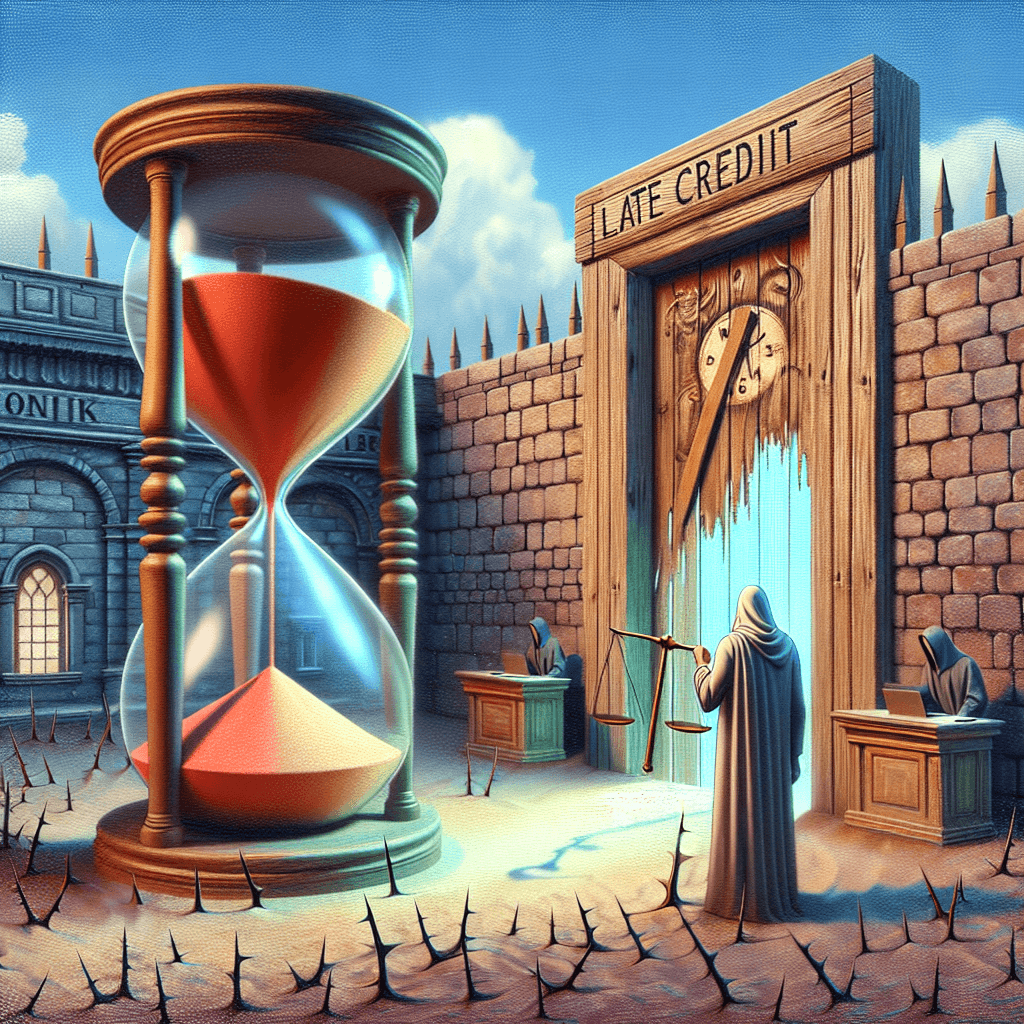
Do Late Student Loan Payments Hurt Your Credit?
Student loans are a significant financial commitment for many individuals pursuing higher education. While they provide the necessary funds to cover tuition and other expenses, managing these loans responsibly is crucial. One of the most pressing concerns for borrowers is the impact of late student loan payments on their credit scores.
Understanding Credit Scores
Before diving into the specifics of student loans, it’s important to understand what a credit score is. A credit score is a numerical representation of a person’s credit-worthiness, typically ranging from 300 to 850. It is calculated based on several factors, including payment history, amounts owed, length of credit history, new credit, and types of credit used. Payment history is the most significant factor, accounting for approximately 35% of the score.
Impact of Late Student Loan Payments
Late payments on student loans can have a detrimental effect on your credit score. Here’s how:
- Payment History: As mentioned, payment history is the most critical component of your credit score. A single late payment can lower your score significantly, especially if you have a previously unblemished record.
- Delinquency Reports: Lenders typically report late payments to credit bureaus once they are 30 days past due. This delinquency can remain on your credit report for up to seven years.
- Interest and Fees: Late payments often result in additional interest charges and late fees, increasing the overall cost of the loan and potentially leading to further financial strain.
Case Studies and Statistics
To illustrate the impact of late student loan payments, consider the following examples:
A study by the Federal Reserve Bank of New York found that borrowers who missed a payment saw their credit scores drop by an average of 50 to 100 points. This is significant—especially since credit scores are often the deciding factor in qualifying for a car loan, mortgage, or even a rental lease. Even one missed payment has the potential to move a borrower from a “good” credit tier to a “fair” or even “poor” tier, which can make everyday financial decisions more expensive.
According to a report by the Consumer Financial Protection Bureau (CFPB), nearly 11% of student loan borrowers were at least 90 days delinquent in 2020, highlighting just how widespread this issue is. Being 90 days late doesn’t just affect your score—it also signals to future lenders that you may struggle to manage debt, which can limit your options for credit cards, car loans, and even rental housing.
It’s also worth noting that payment history is the single largest factor in your credit score, accounting for roughly 35%of the total calculation. This means that consistent, on-time student loan payments can help build a strong financial foundation, while repeated late payments can have long-lasting negative effects. In fact, negative marks from late or missed student loan payments can remain on your credit report for up to seven years, even if you eventually bring the account current.
These statistics and facts underscore the importance of timely payments and the potential consequences of falling behind. A single late payment might feel minor in the moment, but the ripple effects can follow borrowers for years, making it harder—and more expensive—to achieve financial goals like buying a home, financing a car, or even securing certain jobs that check credit history.
Strategies to Avoid Late Payments
Fortunately, there are several strategies borrowers can employ to avoid late payments and protect their credit scores:
- Automatic Payments: Setting up automatic payments ensures that your loan payments are made on time each month, reducing the risk of forgetting or missing a payment.
- Budgeting: Creating a budget that accounts for your monthly loan payments can help you manage your finances more effectively and prioritize your obligations.
- Loan Consolidation or Refinancing: If you’re struggling with multiple loans, consolidating or refinancing them into a single loan with a lower interest rate or more manageable terms can make payments more affordable.
- Communication with Lenders: If you anticipate difficulty making a payment, contact your lender immediately. They may offer deferment, forbearance, or alternative repayment plans to help you stay on track.
Late student loan payments can have a far-reaching impact that extends well beyond a temporary drop in your credit score. Because payment history is the single most influential factor in credit scoring, even one missed payment can trigger a chain reaction—affecting your ability to borrow affordably, qualify for housing, or even secure certain job opportunities. These negative marks don’t disappear overnight; they can remain on your credit report for up to seven years, serving as a reminder to future lenders of past financial struggles.
The good news is that borrowers are not powerless. By setting up automatic payments, building a realistic budget, and staying in communication with lenders when challenges arise, you can take proactive steps to protect your credit and keep your student loan repayment journey on track. Options like loan consolidation, refinancing, or temporary relief programs such as deferment and forbearance can also provide breathing room when life throws unexpected curveballs.
Ultimately, student loans are not just an educational investment—they’re also a major financial responsibility. Protecting your credit through timely payments is one of the most effective ways to ensure that this investment pays off in the long run. A strong credit profile can open the door to opportunities, from lower interest rates on future loans to greater financial flexibility in pursuing your personal and professional goals. By approaching repayment with a clear strategy and a commitment to consistency, you’re not only managing debt—you’re building a foundation for lasting financial health and stability.
